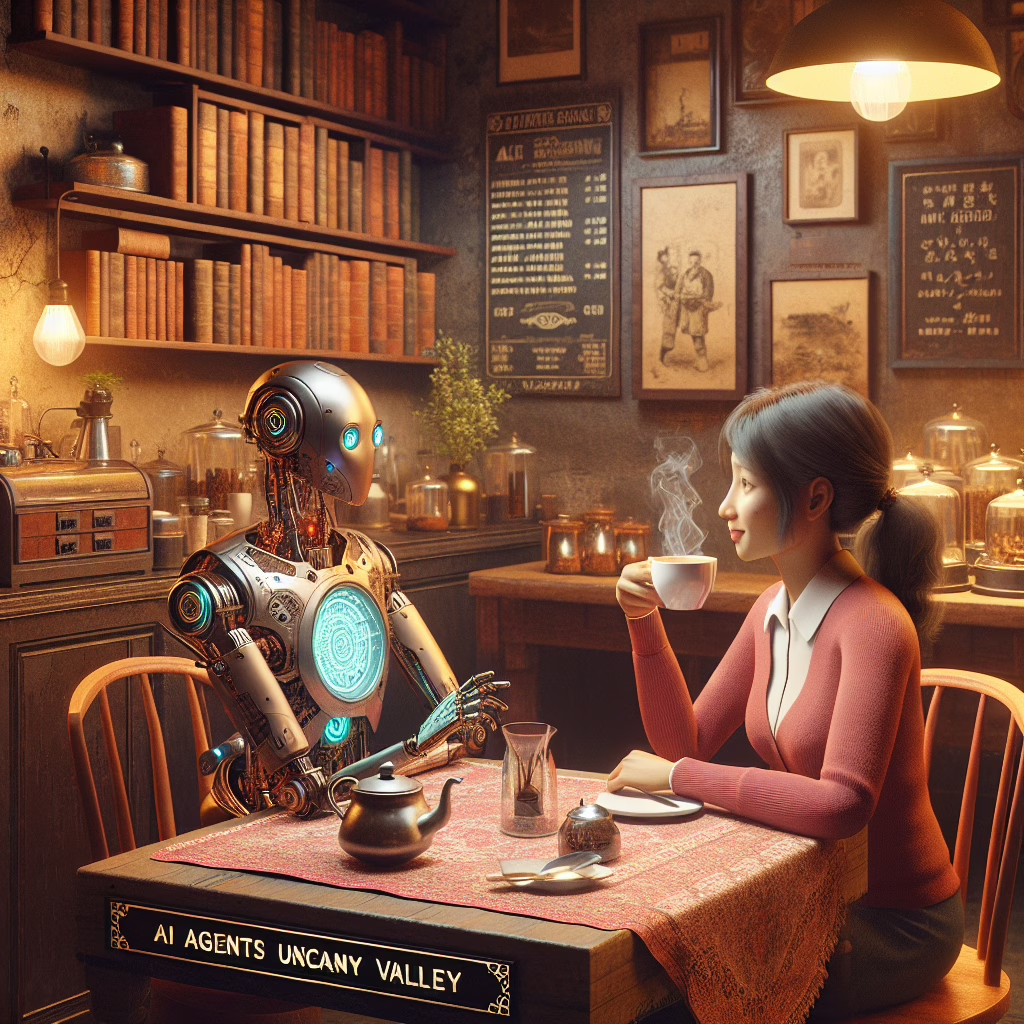Welcome to the fascinating realm of AI agents and the uncanny valley, where robots might just be a little too lifelike for comfort! If you’ve ever watched a movie featuring humanoid robots and felt a chill run down your spine, you’ve experienced the uncanny valley effect. This phenomenon occurs when robots or animated characters look and act almost, but not quite, like humans. Let’s unpack this quirky concept and what it means for our future with AI.
The Uncanny Valley: A Brief Overview
The term “uncanny valley” was coined by Japanese roboticist Masahiro Mori in 1970. He observed that as robots become more humanlike, our affinity for them increases—up until a point. Once they get too close to human appearance without being quite right, we tend to recoil in horror. Think of those awkwardly smiling androids that seem more like horror movie props than companions!
This intriguing psychological response raises essential questions about AI agents and their design. Are we ready to embrace AI that looks and behaves like us? Or will we always have that nagging sensation that something’s just off? According to experts in a recent episode of the Uncanny Valley Podcast, the stakes are high as we navigate this landscape.
Are We Friends Yet? Understanding AI Agents
AI agents are becoming increasingly sophisticated. They’re not just answering our questions or playing chess anymore; they’re engaging in conversations that can feel genuinely human. But should we trust them? The podcast dives deep into this topic, exploring how AI agents can serve as friends, assistants, and even therapists.
Imagine chatting with an AI agent who knows your coffee order better than your barista! On one hand, this sounds like a dream come true; on the other hand, it might lead us down a path of dependence on machines that could inadvertently become too humanlike. Will we soon find ourselves seeking advice from an AI therapist who can’t quite grasp the nuances of human emotion? It’s both exciting and a tad unnerving.
The Psychology Behind Our Reactions
The podcast discusses fascinating psychological studies regarding our reactions to lifelike robots. Researchers have discovered that humans often experience discomfort when interacting with entities that closely resemble themselves but fail to mimic human behavior convincingly. This discomfort leads us to question the authenticity of these AI agents.
- If an AI agent attempts humor but misses the mark, it can leave us feeling perplexed rather than amused.
- It’s like when your friend tells a joke so bad you can’t tell if they’re serious or just trying to torture you!
- Understanding this psychological aspect is crucial for developers aiming to bridge the uncanny valley.
Navigating the Uncanny Valley in Design
Designers face a unique challenge in creating AI agents. They must strike a balance between realism and familiarity without crossing into creepy territory. The podcast emphasizes that subtlety is key—adding just enough human-like features while avoiding that unsettling vibe.
This quest for balance is not merely artistic; it has significant implications for user acceptance and engagement. If an AI agent feels approachable and relatable, users are more likely to engage positively with it. However, if it stirs up feelings akin to those experienced during an episode of a horror series, well, let’s just say user engagement will drop faster than you can say “robot uprising!”
Future Implications: A World with AI Agents
As we look toward the future filled with AI agents, we can only wonder what lies ahead. Will we end up sharing our deepest secrets with a chatbot or getting relationship advice from a virtual companion? The possibilities are as vast as they are amusing!
The podcast suggests that while many people may shy away from engaging deeply with these technologies due to fear of the uncanny valley, others might leap at the chance to embrace their potential. After all, who wouldn’t want an AI buddy who remembers your favorite pizza toppings?
A Lighthearted Conclusion on AI Agents and the Uncanny Valley
In conclusion, navigating through the world of AI agents and the uncanny valley is no small feat! As technology progresses at breakneck speed, it’s essential for developers to keep these psychological nuances in mind. Whether you’re excited about forming connections with lifelike bots or slightly terrified at the prospect of them becoming our new best friends, one thing is certain: we’re in for quite an entertaining ride!
So what do you think? Are you ready to welcome our robot overlords—or at least their friendly avatars—into your life? Share your thoughts below!
For further insights into technology and AI, check out our related posts, such as The best Garmin watches for training and everyday life and Nintendo’s GameCube controller for the Switch 2.
For more on technology trends, don’t hesitate to explore our other articles at Geeky Opinions.

